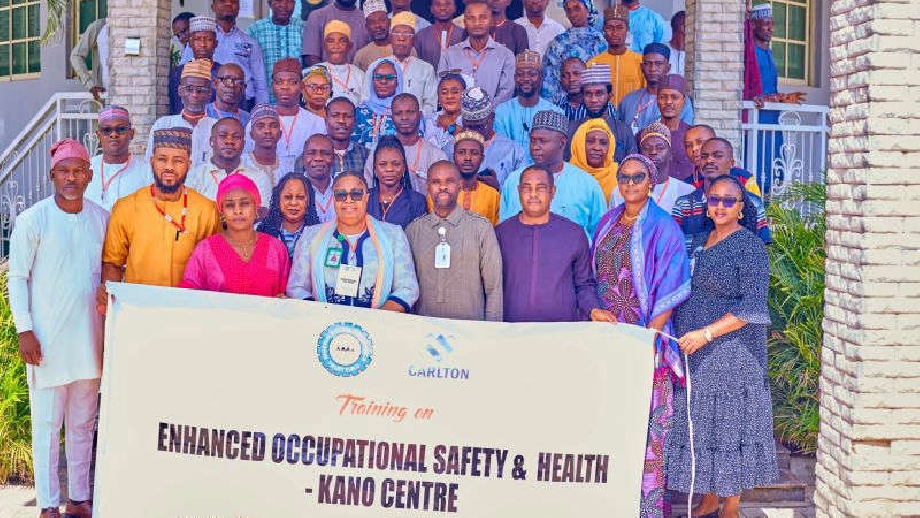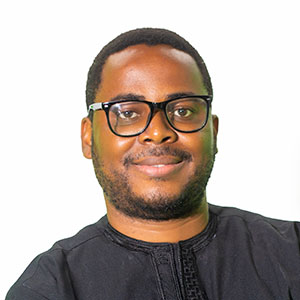
When 32-year-old Mohammad Tukur Adamu left for work at Fas Agro Sacks Company in Sharada Ja’in Quarters, Kano, his family expected him home later that evening.
However, a workplace dispute with his colleague, James Isma’il, turned violent after work hours. Adamu sustained severe injuries and later died.
His mother, Rabiat Sulaiman, still mourns her only surviving son and pleads for justice, worried about the uncertain future of his wife and children.
Adamu’s case is not an isolated one. In Ogun State, a 27-year-old steelworker, Yahaya Ibrahim, lost his life after slipping into an engine roller at KAM Steel Integrated Company.
Even highly skilled professionals are not spared. Dr. Vwaere Diaso, a young medical doctor, died after a faulty elevator at Lagos General Hospital crashed from the 10th floor.
Colleagues recalled reporting the elevator’s faults for months, but their complaints were ignored until tragedy struck.
These stories highlight a painful truth: Nigerian workplaces, from factories to hospitals, often lack basic safety measures. And the consequences are devastating.
A Crisis Beyond Borders
The International Labour Organisation (ILO) estimates that more than 2.78 million people die annually worldwide from work-related causes. Of these, 2.4 million (86.3%) result from work-related diseases, while 380,000 (13.7%) come from occupational accidents.
Beyond deaths, the ILO says around 374 million non-fatal injuries occur globally each year, each leading to at least four days of lost work.
The economic cost is equally staggering. Work-related illnesses and accidents drain nearly 4% of the world’s GDP - about US$1.25 trillion annually.
Nigeria is not spared, losing an estimated US$244 million in fatalities and US$34,400 in severe injuries yearly.
In Kano State alone, with more than 4,000 industries, the Nigeria Social Insurance Trust Fund (NSITF) receives 10 to 15 workplace incident reports every month, some fatal.
Seeking Solutions
To tackle the problem, the NSITF, in partnership with CARLTON Concept Projects Limited, recently introduced an Enhanced Occupational Safety and Health (OSH) training program.
The program targeted employers and employees enrolled in the Fund’s Employees’ Compensation Scheme (ECS). Its aim is not just to enforce compliance, but to encourage proactive safety practices that reduce risks before they claim lives.
During the session, participants were trained on Fundamentals of Occupational Safety and Health (OSH), which emphasises that safety is not just a policy but also a legal and moral duty.
They also learned Behaviour-Based Safety (BBS), which focuses on cultivating safe work habits, and Mental Health & Safety, highlighting that a supported employee is more productive.
Other key areas included Human Intelligence in Safety, where workers were reminded that they are often the first detectors of risks, and AI and technology, which showed how digital tools can help foresee hazards before they occur.
Risk Assessment, reinforcing that prevention costs far less than accidents, and the proper use of Personal Protective and Respiratory Equipment (PPE/RPE).
According to NSITF, the training’s objective is simple: to “inculcate best practices in workplace safety, with the larger aim of preventing occupational hazards and deaths.”
The Compensation System
The scheme builds on the Employee Compensation Act (2010), which mandates employers to contribute 1% of payroll to NSITF. In return, workers are covered for injuries, diseases, disabilities, or death - without lengthy litigation.
This arrangement protects both employees and employers. Victims and families can receive compensation quickly, while companies avoid court disputes.
At the training, NSITF Regional Manager Shitu Dauda expressed concern over workplace fatalities but emphasised that the scheme provides vital protection.
“This is a bold step towards safer, smarter, and more sustainable workplaces. Our commitment is to protect, preserve, and promote the dignity and well-being of every Nigerian worker,” he said.
Speaking at the training, a consultant and facilitator, Dr. Karo Diamond, stressed the urgency of implementation.
“Accidents don’t just happen; they result from neglect. Safety policies are not optional; they save lives,” he said.
Employers also made commitments. Participants said the program reshaped their understanding of safety.
Ibrahim Umar, Manager of Diamond Super Sacks, called the program “timely” and pledged to sensitise employees on safety culture.
Another employer, Michael Okore, admitted “some safety rules were not fully applied in his company”, but vowed to correct that after the training.
Also, Michael Ajiboba, HR Manager of a Challawa-based plastics company, said his firm pays the required 1% contribution and has benefited from NSITF’s support.
He said, “The support has reduced the incidence reports experienced in the company.”
Also speaking, head of NSITF’s Health and Safety Department, Nafisa Aminu Abubakar says “regular sensitisation has already reduced incident reports in Kano from 15 cases monthly to as low as five - and sometimes none.”
Still, she raised concerns that “some employees fail to report accidents, choosing instead to rely on first aid or private health insurance, unaware they can claim compensation through the scheme.”
Importance of Sustainability
To sustain it, one of the facilitators, Dr. Felix Ekweli, stressed that Strict enforcement of safety laws must be ensured with penalties for defaulting firms.
According to him, Continuous training and awareness campaigns, especially in high-risk sectors like construction, steel, plastics, and healthcare, are needed.
Dr. Ekweli also says companies and industries must adopt technology, such as safety sensors, alarms, and digital reporting systems, to keep the workplace safe.
For families of victims like Tukur Adamu, Yahaya Ibrahim, and Dr. Vwaere Diaso, these changes may come too late. But their tragedies serve as reminders that the cost of inaction is unbearable.
As one NSITF official put it: “Every Nigerian worker deserves to go to work in the morning and return home safely in the evening. Anything less is unacceptable.”


